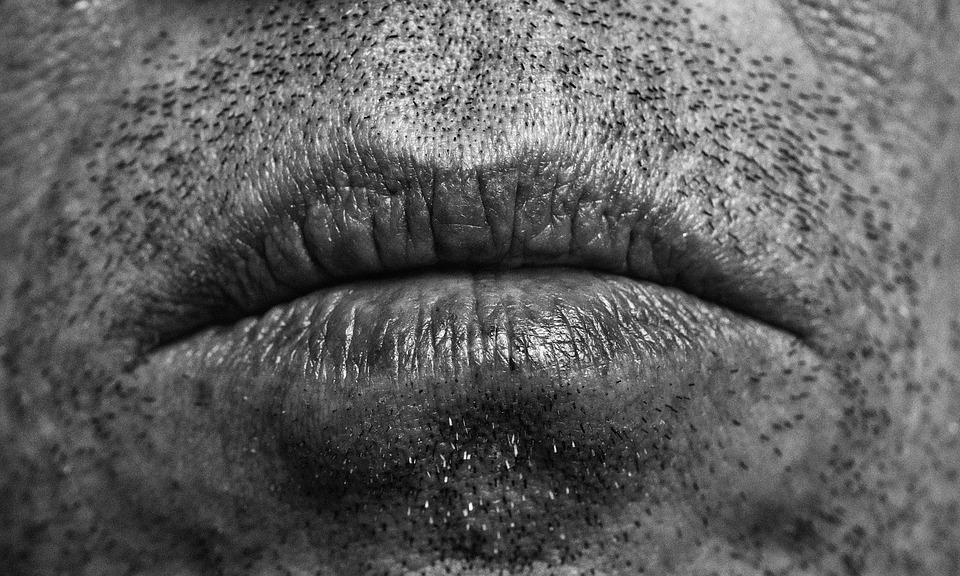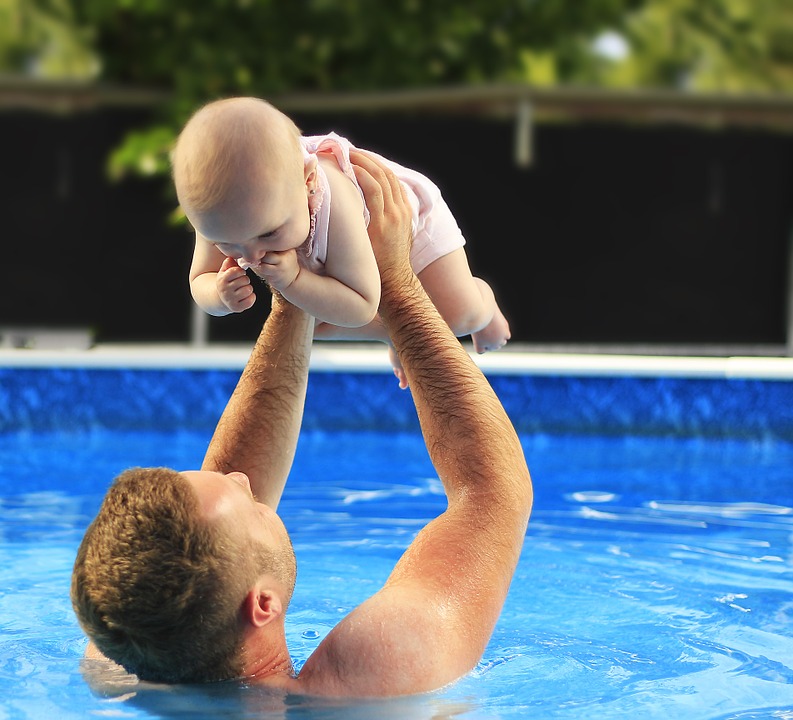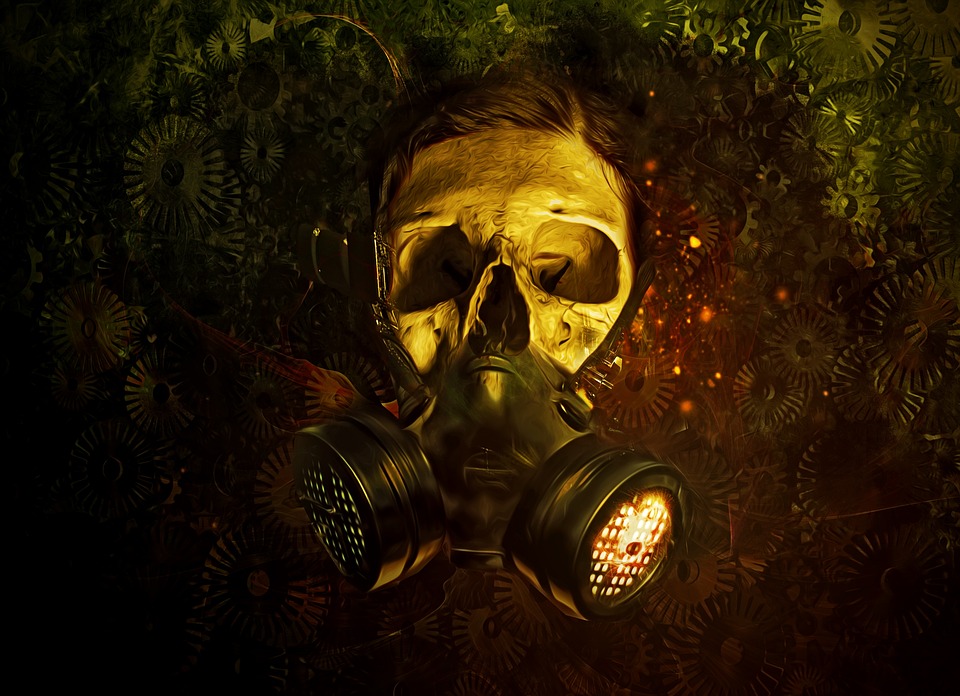Matthew Bell

@matthewbell
About

Matthew Bell
@matthewbellPosts
Moving-out Mayhem
Welcome back! This week I will be talking about a topic, a milestone of life you could say, with an Aspie (and maybe a little bit of a country) twist: Moving out for the first time. A frightening, opportunity-laden experience that, in my opinion, will be as close to a baptism of fire-like experience as most of us will get. It will help shape us into the responsible adult we can all be. And believe me when I say emphasis on the word, responsible, as I am already starting to find that part out for myself. I will be writing about my experience with this milestone, some of the ups and downs, as well as what you can expect, as an Aspie/Autistic, if you yourself are thinking of or are going to move out. Kind of like a tell-all scenario, except only about the whole moving out scenario.

So kind of like a tell-all-concerning-only-moving-out scenario. It still counts.
First of all, you’re going to need to start packing for the extended trip, making sure you pack enough food, clothing, and the correct equipment (toiletries, cooking equipment, etc.) I say correct equipment, because trust me when I say that if you don't bring the right kind of stuff, like a comb, shampoo, cooking pot or, in my case, razor, you’re not going to have a fun time. It won’t be world ending, though it may start to feel like it. When I started packing, with the assistance of my parents, and it came down to getting toiletries, I understood that some stuff would need to be bought and packed for the trip. That they should not be brought from home, in case I lose them at my temporary place of stay (and also so that I did not have to keep lugging them around). I thought that my razor was one of those items, I was right. Though the replacement razor that I bought wasn't (at all) much better.
See, the razor that I decided to buy, after speaking with my parents, was an electric razor. An electric, cheap (for an electric razor here in Canada, $50 counts as cheap), beard trimming, razor. What's so wrong about that? Well concerning that I would really only be using it a couple of times a week, and that if I lost it, it would not be that much of a loss (though I would certainly miss the next $50 I’d have to spend on a replacement), not much. The sticking point, dear reader, is the whole beard part. I don’t have a beard to shave off, only stubble. And, as I’m sure you’re well aware and have already put two and two together, a beard trimmer is not a good way to shave off stubble. Or even to look moderately good looking at best.

For those of you who saw the movie Bernard and the Genie, I looked like Bob Geldof but with the hair combed back.
You can imagine how impressive I must have looked walking out the door, going on public transit, and walking around the university looking like I had forgotten what proper hygiene is. A very pretty picture. That's why I stressed the correct part when buying your equipment, otherwise the transition will not go as smoothly as you hoped it would. Right up there with making sure you brought enough food to last you some time, and having enough money to make sure you can buy groceries when you need to. Think of it like camping, but preparing for a prolonged stay, you bring along way more than just some toothpaste and a toothbrush, and (most likely but not always) you’re in the city. The best way to experience camping
Well, that does it for this week. Next week I will continue to regale you with my… interesting experiences (I’ll just chalk up the whole razor bit to a bad facial hair day). The main topic being navigating a new routine, while navigating a new transit route...twice. In two different weeks. One week after the other. If that’s not enough to cause you to hyperventilate, I don’t know what will. Until then, this continues to be, the Audacious Aspie.
Picture Imperfectly Perfect
Welcome back! This week, We’ll be looking at an article that, while it does not specifically deal with issues concerning the Autistic/Aspie community, does show an inventive way of how we can solve one of our major problems: how society at large sees us. I’ve talked a bit about this in the past, but the reason I’m bringing it up a bit again is because I like how the people in this article went about trying to solve it, albeit for a not-so-very different reason. Please welcome our next guest: CNN.

We always roll out the red carpet for our extinguished guests who come on our grass roots blog. I hope I spelled extinguished right, and not in the same way that is used to describe a fire being put out. Never ends well to spray your honoured guests with an extinguisher.
Now, big news articles like CNN rarely go on the spot light on this blog (Because mostly because they rarely feature topics about our community), but this time I thought would be different simply because what’s been reported here we can easily recreate ourselves. Have you heard about the photo art series “Eyes as Big as Plates”by photographers Ritta Ikonen and Karoline Hjorth? It contains photos of elderly people from multiple nations (Japan, Norway, and others) dressed to look like the gods, goddesses, or spirits from their respective regions in natural environments. Essentially, they go about meeting seniors, asking if they would like to have their photos taken, and then letting them wear whatever style that would make them look more like vegetation than man (look at the pictures and you’ll see what I mean).
The meaning of this is, like all art, subjective. To me, the pictures are meant to empower senior men and women, showing them to society in a new light through images of them dressed up as powerful gods, goddesses and spirits of nature. Not to mention also showing the beauty and power of nature, while also that we may be closer to the natural world than we think we are. It’s on the first thought though, that caught my attention. If it could work for the elderly, why not for the Autistic/Aspie community? Why can’t we take pictures of ourselves or others in the same light, as powerful gods or goddesses, or even our favorite heroes like Superman or anime character/superhero?

Or be your own superhero! Dress up as a hero of your own making: Your own costume, tools, powers, all that stuff. Even your own back story! Like being bitten by a radioactive mosquito!
Through that medium, by showing ourselves in a different, empowering light than is normally associated with us, we could change how society sees and perceives us. Rather than as violent, angry, awkward social outcasts who are only good at math or computers, we could present ourselves as strong individuals whose natural abilities are that, like the mythical gods themselves, varied in strengths and weaknesses, with no two being exactly the same (unless a domineering empire takes over your country and starts to absorb your culture, than break international copyright laws by making an entirely “new” god with the same looks, same powers and same backstory, but a different name. Think of Rome and any other ancient culture).
So why not. Why not take a picture of yourself that way and post all over social media. In fact get a bunch of friends/family/both and do it! Make a day of it! Combine two of the best things in the world: Having fun and changing societies views for the better. That does it for this week’s post. Next week will once again be a completely different topic, and maybe later than usual as right now I am preparing for a major change, plus start working on another side project that might tie in to this one. Until then, this continues to be, the Audacious Aspie.
Source Used:
https://edition.cnn.com/style/article/seniors-natural-wonders-artsy/index.html
Oh the Places we’ll go to Find Work. (Or: The Places we Won’t go For Lack of Money)
Welcome back! This week, I will be talking about my own thoughts on the topic of poisonous workplace environment towards Autistics/Aspies, which I’m sure everyone wants to hear (which is the whole point of writing any blog ever. Everyone knows that). So without further ado, I’ll get to the talking bits.

Come one, come all! Here my opinion on this particular topic today! I promise you won’t get sick of my voice at all!
I’ll admit, I have been relatively lucky when it came to working environments and employers in general. Either I stuck around long enough to eventually win them over, left before the working environment turned sour, or just had really good bosses and coworkers in general (one job my boss was a great guy, but one of my coworkers was...yeah). So I can’t say I know what it’s like to be in a poisonous environment, at least not all throughout my tenure (I have been in a couple of poisonous classroom environments, but that's another topic). That said, the reason that I did not have to many negative work experiences is probably because, as the article says and what I hear and read from other fellow Autistics/Aspies, employment opportunities for us are both few and far between.
It’s pretty much to the point of nearly every Autistic/Aspie experiencing a year or more of unemployment before they get a job, and even than the quality of the work itself and it’s environment may not always be up to snuff. And true, I am writing from the experience of a young university student, where employment, full time or otherwise, are now famously seemingly non-existent to us, I have noticed a pattern between them. When it comes to the employment troubles of typical NT youth, while there are some complaints of work being few and far between, they usually mean good, non-entry level jobs where you don't need either a degree or a certain amount of experience to get in, once their degree is done.

Oh sure, everyone says that getting a post secondary is a rich experience, but what they don’t tell you is that it makes you poor, have a poor diet and aroused at the same time. Okay the other two can happen before and after college but not the first! Okay the first to.
And as for the time of being unemployed, they usually measure such periods in, well, weeks. Months at worst. When it comes to Autistic/Aspie youth though, such unemployment periods, mine included, can be measured in years, one, two or more. And those that do find work will...yeah. And true, places like Mcdonalds or Harveys are always looking for people, but you try getting someone who is A) introverted by nature. B) after facing years of being bullied for something that they cannot help, gaining a feeling of dislike for the human race in general. C) Most likely has some mental health issues (probably thanks to B) or is neurodiverse in more ways than one (ADHD, high anxiety, etc) which will hamper them to a large degree in working in a culture were speed is key and pressure is always present.
In other words, what little jobs that are out there, would not necessarily be ones that we could, or should, do. And in most cases, may actually come out of it in a worse condition than we went in. So what can be done? This is something that will take more than the Autistic/Aspie community to handle, as it affects more than just us. What we can do, for our part, is show potential employers that we can be more than just coding captains, banking barons or menial work masters. We could be doctors, police officers, politicians, and more (If you are a coding captain, you could make an internet showing videos of Autistics/Aspies performing work, more than the stereotypical ones. Just an idea).

You know, just a tiny little suggestion that, if it doesn't work out, I don’t need to be credited for it. But if it does work out and is a big success (especially if it is a big success), than I definitely need to be credited for it.
As for the other part, it’ll take all of society to help change that, to make more well paying, none-menial type jobs available for those in the workforce. Unless automation takes all the jobs away, then it’ll be a whole different ball game (bloody machines, slowly taking our jobs away. I blame the terminator movies for giving the idea to companies like Apple and Amazon).
Well, that does it for this week's post. Next week will be (as I said many times in the previous couple of posts) will be an entirely new topic for us to explore (tired of hearing it yet? No? What about now?). Until next time, this continues to be, the Audacious Aspie.
Source to use:
https://www.linkedin.com/pulse/dark-side-autism-workplace-marcelle-ciampi/
Star Wars movie with an Autistic/Aspie Reference (Hey, Coming up with Titles is Hard)
Welcome back! Last week we left off with how much more potential harm than good hiring initiatives towards Autistics/Aspies are doing. You know, cheerful stuff. This week we will...continue looking at that topic still (you can never have too much of a good thing), finding out some of the ways the message, though positive on the cover, has some, well, unfortunate messaging behind it (though again, that is not necessarily always the intention with every initiative). Anyways, enough talk, time to walk (to the next paragraph).

If you look to your right, you will see the wonderful white space with the scroll icon at the very end. If you look to your let you will see a lovely picture of the author himself and some relevant info (please no screen caps while the tour is in progress).
What’s one of the jobs Autistics/Aspies are usually pigeon holed into? Why, tech or data entry ones of course (not to say that that’s necessarily a bad thing if you are skilled in that way, fair play to yeah if you are). Often the companies hiring Autistic/Aspie'ss are being sold the message that we are all coding savants. Which is wrong obviously, ‘cause if we were all coding savants there would be a lot less misunderstandings about us out there on the internet, and a lot more references about obscure things that we happen to like at the time. Less lies about a cure, and more articles on how certain anime shows, or graphic novels, are the bomb.
Then of course, there is the mistreatment: vocational agents disclosing employees disability/diagnosis with hiring manager without the expressed permission of the employee. Telling said hiring manager what negative, stereotypical behaviours the employee will be exhibited once hired. Then, according to the article, forced to make eye-contact, “criticized for their natural way of being” (The Dark Side of Autism in the Workplace, Paragraph 14), and made to work with either a job coach or undergo ABA training, just to name a few. Fun times for no one.

See this wonderful picture of a father and his child having fun together? This is all the fun that you will not be having if something like the above happens to you.
The workplace trainings, the article says, are barking up the wrong tree: they are trying to understand Autism/Asperger's (In a way where they don’t just ask us about it. Talk about fighting a battle with both hands tied behind your back and on your knees). What they should be doing instead is trying to improve conditions by providing quality leadership, improved communication practices and “universal diversity and inclusion training” (The Dark Side of Autism in the Workplace, Paragraph 15).
Well, that does it for this week! Next week will be my personal thoughts on the topic before moving on to a different topic altogether (I actually have one already picked out this time! Go me!). Hopefully this has not left you feeling to distrustful and/or full of dislike towards all hiring campaigns geared towards Autistics/Aspies, as not all are this bad (and we should definitely demand for, and make good use of, those that are actually worth while). In the meantime, this continues to be, The Audacious Aspie.
Source:
https://www.linkedin.com/pulse/dark-side-autism-workplace-marcelle-ciampi
Star Wars, The Autistic’s/Aspie’s strike Back!
Welcome back! This week we will continue our look at a certain part of the issue of unemployment in the Autistic/Asperger community, mainly the poor workplace environment. Last week we left off, I was reviewing a section of an article going on about how we are a marginalized minority in the workforce living in a broken culture. Now let's continue off from last week with some good old-fashioned what-ifs on a social-justice scale. You know, fun stuff!

Who says political games can’t be fun? They’re fun for everyone under the sun! And by political games, don’t mean the ones where one person fights, lies and cheats their way to the top of political power. That's just fun in general.
Here's a surprise for you guys: did you know that it’s easier for people who are Autistic/Aspie to communicate with other people who are also Autistic/Aspie? No? Will apparently science is, or at least the people who performed a study on just such a topic, showing (duh) that its not our Autism/Asperger's that's the issue but rather our culture, lack of workplace Autistic/Aspie role models, managers and leaders. In other words, this is a classic case of “we told you so”, except now they are now finally listening to us rather than talking at us.. Like man-splaining, but for NT’s: NT-splaining (copyrighted by me). Here's a link to the findings of the study.
Need a clearer case of what I mean? Well imagine that the roles were reversed: most of the people in the workplace are not NT, but in fact are Autistic/Aspie. All the managers, board members and CEOs, right down to most of the average Joe worker’s are Autistic/Aspie. And you, my friend, are one of the view, or perhaps the only one, who is NT and hired to work for the company. You become, in effect, the token NT of the company, and become the one that they will constantly point to and say “see? We are an equal-opportunity employer, the NT community love us now that we have hired one of their own!”. All the while, of course, we try, subtly or otherwise, every day to change you and make you into one of us. From NT to Autistic/Aspie. Sound like a dark, sci-fi themed scenario? Yep.

Maybe not as dark as 1984 or a clock-work orange dark, but dark enough. Dusk-like dark perhaps, with the sun still shining through but still a lot of darkness around the edges.
The article gives this kind of scenario, or mentality, an interesting name: “Autism in the Workplace” (Paragraph 12, The Dark Side of Autism in the Workplace. See? I’m not the only one coming up with crazy names for certain events and scenarios. I just like to think that I do it better). Supporting Autistic/Aspie stereotypes, highlighting people with disabilities as somehow less than and in need of help, education and low-end work. All the while ignoring the vast majority of us who have some university/college degrees and have had some low-end jobs as well. As Kermit the Frog once said: It’s not easy being green.
Will, that does it for this week. Next week will be my last review of this subject, after which a list of my own personal thoughts on it will follow, because I think we can all agree when I say that the sound of my voice is beautiful. Then moving on to something completely different (Monty Python Reference). Until then, this continues to be, The Audacious Aspie.
Source used:
https://www.linkedin.com/pulse/dark-side-autism-workplace-marcelle-ciampi/
The StarWars Story That is Not Quite as Exciting as The Others
Welcome back! This week, we will be taking yet another look at the employment issue facing the Autistic/Asperger community. Now some of you may already think that all the factors have already been covered: Hiring practices more suited to NT’s with face-to-face interview being preferred. Our simple lack of understanding social cues unfairly taken to mean that we are a cold, cruel people and the wider societies poor understanding of us, just to name a few. And while all of those may be true, there is a more work-related reason, like the hiring practices, as to why the unemployment problem is so pervasive in our community. You may already know what I am talking about, or you may not. As all the clickbaits like to tell us, some of it may surprise you!

Clickbaits, the annoying, abrasive person of the internets’ fish hook. The worm is the stylized, dramatic wording and font choice. At least unlike the actual fishes and fish hooks, you won’t die if you get caught on one (though you may come close to it through boredom).
So what am I talking about exactly? Well, according to an article on LinkedIn, we have a hard time fitting into our workplaces, to the point where we are forced to leave in order to retain our own sanity. That is, try to avert depression, severe anxiety or even PTSD, all or mostly because of feeling lonely in the workplace. Not to mention the feeling of, if you’re on social assistance, unemployed or both, like you are not a productive member of society. In short: not exactly feeling your best most days.
The result of this, the article says, is leading to plenty of Autistics/Aspies either being underemployed or self employed, if they can find work at all.
And with 24% of the workplace place population (unclear of whether it is the worlds or a specific nations) declaring that they have one or more disability/different numerology, that’s a lot of loneliness to go around. At least psychologist’s we’ll never go out of business, no matter how many emotional-tracking-apps there will be (expect an explosion of them). Now, the article says, it’s not like things aren't getting better. We’ve all seen and/or heard from the media’s stories of apparently “thousands” (not sure where the article gets that number, as at best I hear of hundreds finding employment, while actually seeing only tens in the workforce, but anyways) getting support for employment excavation (get it? Excavation? As in archeologists excavate, or find, artifacts? Because...it’s...never mind).

That joke probably had as much of a chance as being both understood and found humorous as this plane apparently had of landing safely.
But what’s the info behind all the big numbers? Well, according to the article, the thousands of Autistics/Aspies are all young, and the jobs are usually low paying, menial entry level positions. And as for the older generation? Those who have already gone through years of low-pay, poor treatment and the rest? Well, there is little support for them when it comes to employment excavation, or wandering for work, or exploring for employment (however you want to phrase it). Not that, according to the article, the employment initiative are that good anyways, despite some being well meaning.
And despite their efforts, we remain marginalized, misunderstood, and compartmentalized (a fancy way of saying shoved in an all-defining box). Either being mistreated or told to become better, non Autistics/Aspie people. The author said it best with “We aren't broken people. But we live in a broken culture” (The Dark Side of Autism in the Workplace, LinkedIn, paragraph 10). Well, that does it for this week! Next week we will continue to look at the subject from this, in my view, interesting angle. Along with some thoughts of mine in the end. But until then, this continues to be, The Audacious Aspie.
Source to use:
LinkedIn,The Dark Side of Autism in the Workplace
Chaotic Confusion Part 3
Welcome back! This week, we continue, once again, our look at why we get stressed when confused, continuing on from last week were we looked at how the article ties stress from confusion, and melt downs, together. Basically saying that the stress from confusion comes from living in a world that not only doesn’t understand us, but also expects us to act like we are the same as the wider population, than punishes us whenever we eventually break form the act in nervous break downs (it may seem like an anxity teen thing, the whole world not understanding us and the rest, but to talk to anyone who is Autistic/Aspie, and you will realize that the problem transcends age and affects literally all of us).

When we do act out, it’s not so much with big sighs, or eye rolls, or “OMGS!!!!!!”, but more like people who are actually dealing with an issue that we face everyday.
But wait! it gets even more complicated than that! As bad as living in a world that does not understand us and the rest is, the second part of the problem, expected to act like everyone else, proves to be a unique stressor all its own. Think about it: has any one of us in the Autism/Asperger community naturally knew how to act like an NT? I sure didn’t, and in most cases still don’t, or at least only in passing. We have to learn the various social cues, verbal cues and the rest when interacting with the rest of society. All the while being misunderstood by them and being expected not to show cracks in our facade.
That, the article claims, is like “learning through fear and intimidation which is not learning at all” (THE ASPERGIAN, Paragraph 15, Why Being Confused Is Absolutely Panic-Inducing For Most Autistics). And from there we move on to the articles second point: how society goes about teaching. Our school systems, or at least the ones in Canada as they are the only ones I am familiar with, do tend to teach in one way and one way only: by reading, memorizing and regurgitating information onto tests and exams. Metaphorically regurgitating. Actually regurgitating the answers would bu just unsanitary. All other forms of learning are poo-poo’ed, and any student who tries them, so the article says, is punished (not always severely, but passive aggressively, only the second-worst kind of aggressiveness).

Oh sure, those kids may look like they are having fun, they are really bending under the unyielding one-way doctrine of schools everywhere! See how unreasonably close they are to the paper?
But that’s not how human beings work (not the first time an institution, run by fellow human beings mind you, seemingly forget how the human soul/brain/consciousness works). We all, both NT and diverse, learn in different ways, from hands-on, to visuals, and than some. Some would say that it’s hard to see what’s happening on the street from all the way up in the ivory tower, but I would like to assume that they are rather working in a kind of two or three story ivory office building instead, fixed to their computers for hours on end with minimal human contact. After hours of sitting there with only the screen, some music and the ever-increasing boredom growing on you to keep you company, you’d feel more machine than man yourself. I know that feeling, as I work in a office job myself.
Well, that does it for this week! Next week we will move on to a different topic altogether using my high processing power to search the web for related topics. Shoot, I mean type in commands on my computer, to search the web for related topics (nailed it that time). But until than, this continues to be, the Artificial Intelligence. I mean The Audacious Aspie.
Source Used:
https://theaspergian.com/2019/05/22/panic-and-confusion/
